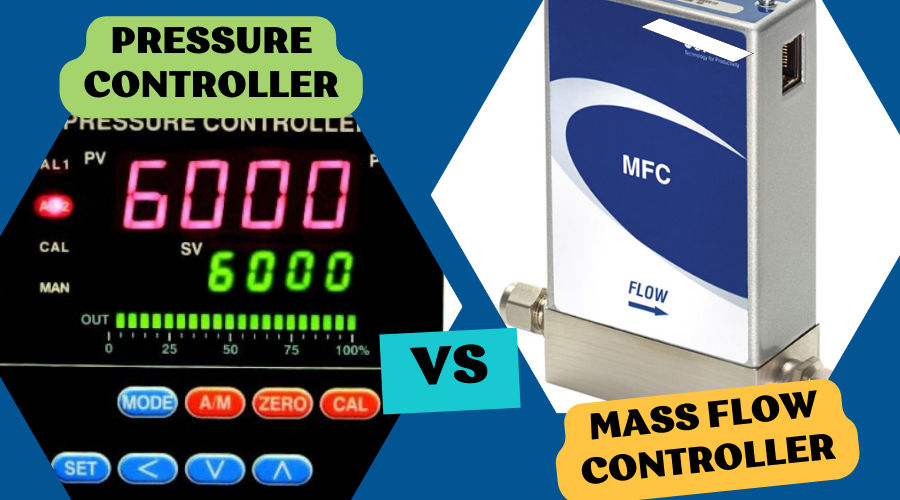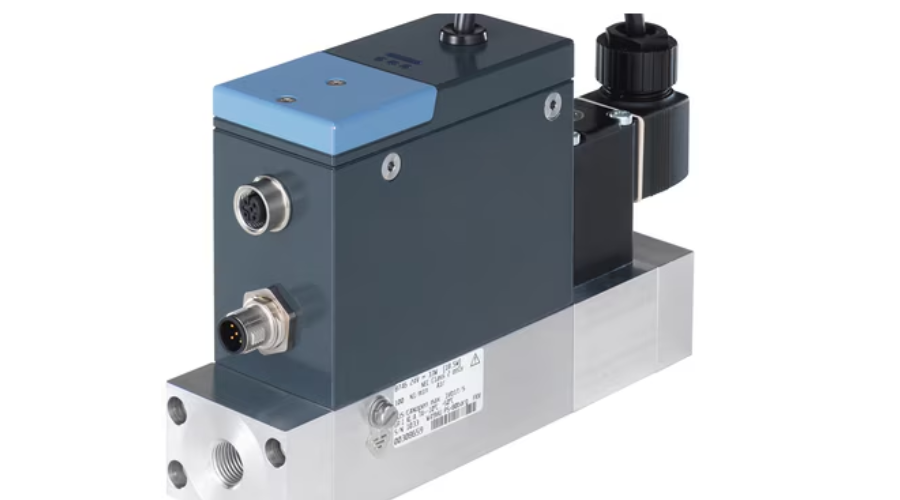-
 No. 659 Hewang Rd, Jiading District, Shanghai P.R.China
No. 659 Hewang Rd, Jiading District, Shanghai P.R.China
-
 info@marvels-sense.com
info@marvels-sense.com
-
 +86-18321684506
+86-18321684506

Flow and pressure controllers are essential components in many industrial processes, but they are often confused due to their similar functions. Understanding the critical differences between these two devices is crucial for selecting the right one for your application.
Let's dive into the distinctions between flow and pressure controllers, explaining their definitions, applications, and the factors to consider when choosing between them.
A flow controller is a device designed to regulate the flow rate of a fluid, whether it's a gas or liquid. It measures the flow rate and adjusts it to maintain a desired set point. This feature ensures consistent flow, even when there are fluctuations in pressure or temperature.
Flow controllers are widely used in chemical processing, semiconductor manufacturing, and pharmaceuticals. They are particularly important in processes where precision flow control is critical, such as mixing chemicals or filling containers.
On the other hand, a pressure controller is only responsible for maintaining constant pressure within a system. It measures the pressure and adjusts the flow rate to keep it at the desired level. This is achieved by either increasing or decreasing the fluid's flow.
Pressure controllers are commonly found in oil and gas, HVAC systems, and power generation industries. They are integral parts of the systems that require steady pressure to function efficiently and safely.
While both flow and pressure controllers regulate the flow of fluids, they have different primary functions and respond to system changes in distinct ways.
Primary Function: Flow controllers regulate the flow rate, while pressure controllers are responsible for maintaining a specific pressure.
Flow controllers respond to changes in flow rate due to external factors like pressure changes. Pressure controllers react to changes in system pressure, adjusting the flow to maintain the desired pressure.
Flow controllers measure flow volume or mass per unit of time (e.g., liters per minute, cubic meters per hour). Pressure controllers measure in terms of pressure units (e.g., PSI, bar, or Pa).
The choice between a flow controller and a pressure controller depends on the specific requirements of your application.
Flow Controllers: Use a flow controller when precise flow rate control is needed, such as chemical mixing or gas flow in reactors. Flow controllers are ideal when maintaining consistent flow, which is more critical than pressure.
Pressure Controllers: Use a pressure controller when constant pressure is required, such as in hydraulic systems or gas distribution networks. Pressure controllers are best suited for systems where pressure stability is critical to ensure system safety and efficiency.

In some cases, using both flow and pressure controllers together can optimize system performance. For example, precise flow and stable pressure are crucial for quality control in gas delivery systems.
Integrating flow and pressure controllers can achieve greater accuracy, safety, and overall process efficiency.
Advantages:
Precision in regulating flow, especially in dynamic systems.
Disadvantages:
Less effective in systems where pressure changes are more critical.
Advantages:
Maintains constant pressure, ensuring system stability.
Disadvantages:
It may not offer the precision needed for systems that rely on specific flow rates.
Understanding the difference between flow and pressure controllers is crucial for selecting the right device for your application if you want to get optimal performance and efficiency by carefully considering your system's needs and requirements.
1. What is the main difference between a flow and pressure controller?
Flow controllers regulate a fluid's flow rate, while pressure controllers maintain a constant pressure within a system.
2. When should I use a flow controller instead of a pressure controller?
Use a flow controller when precise flow rate control is needed, such as chemical mixing or gas flow in reactors. Flow controllers are ideal when maintaining consistent flow, which is more critical than pressure.
3. When should I use a pressure controller instead of a flow controller?
Use a pressure controller when constant pressure is required, such as in hydraulic systems or gas distribution networks. Pressure controllers are best suited for systems where pressure stability is critical to ensure system safety and efficiency.